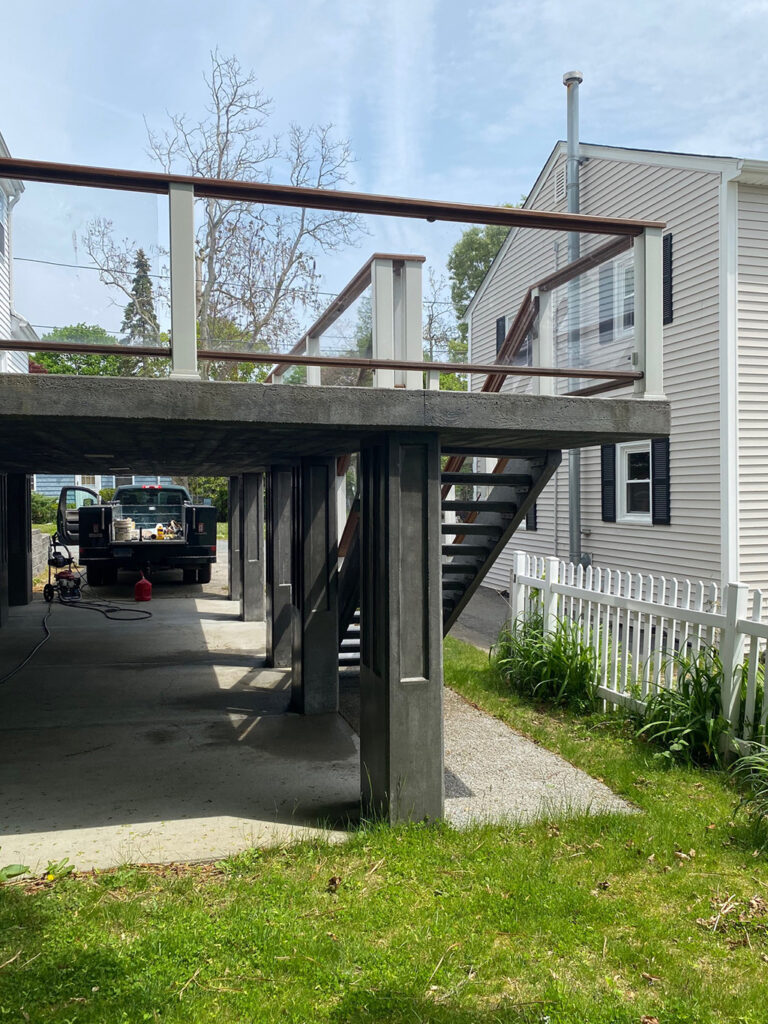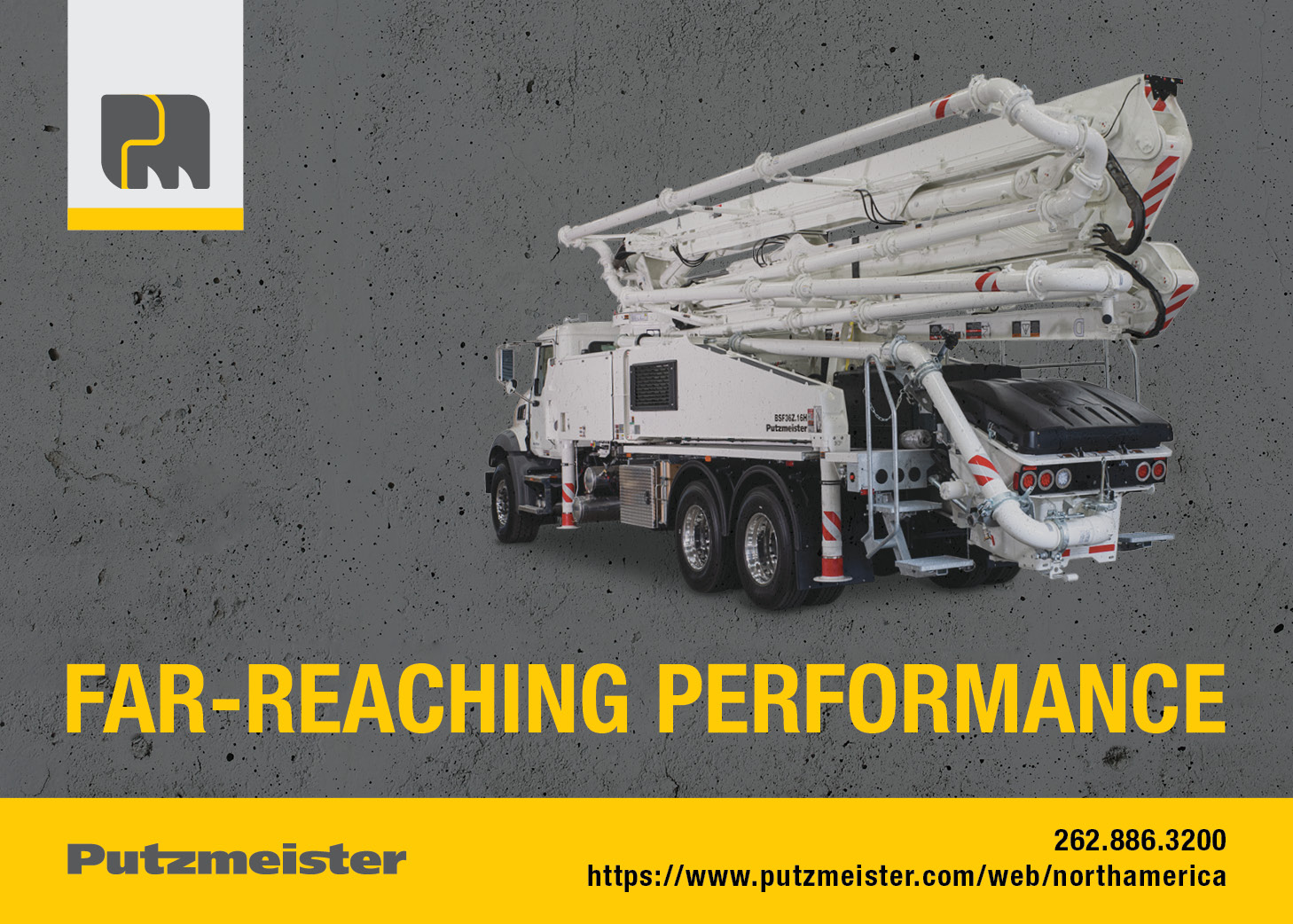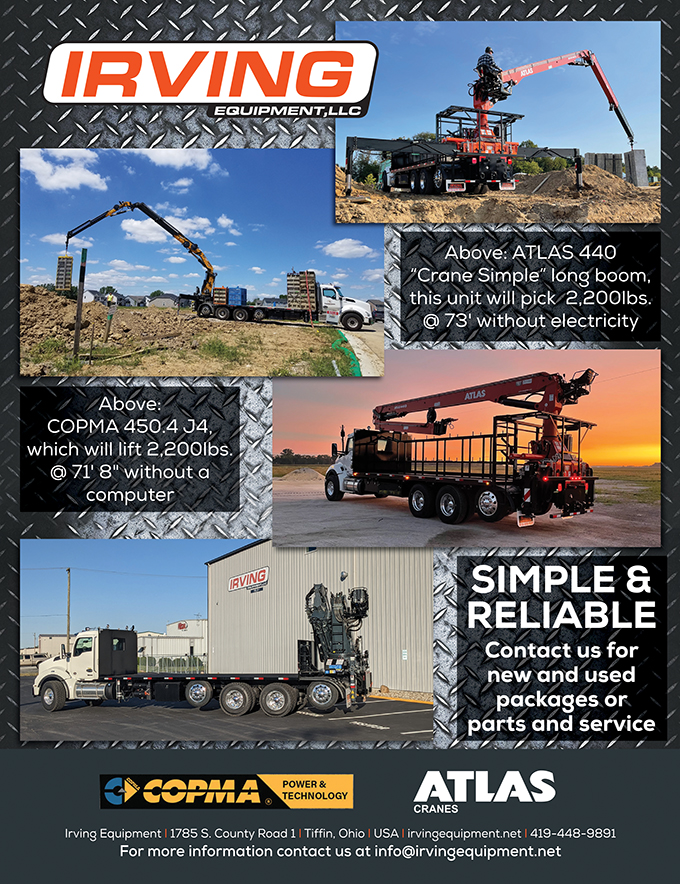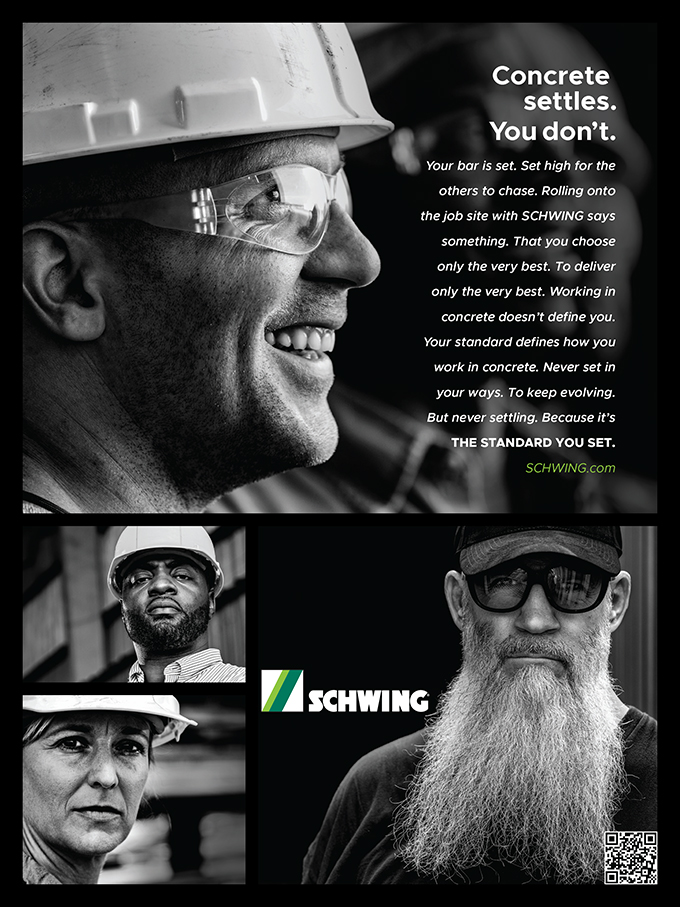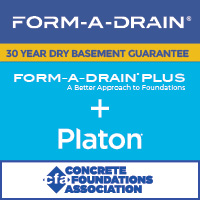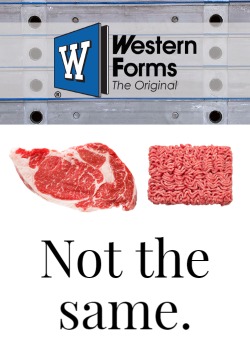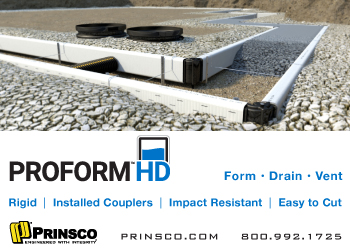Dennis Purinton: An Abrams’ Law Story
Español | Translation Provided by the CFA
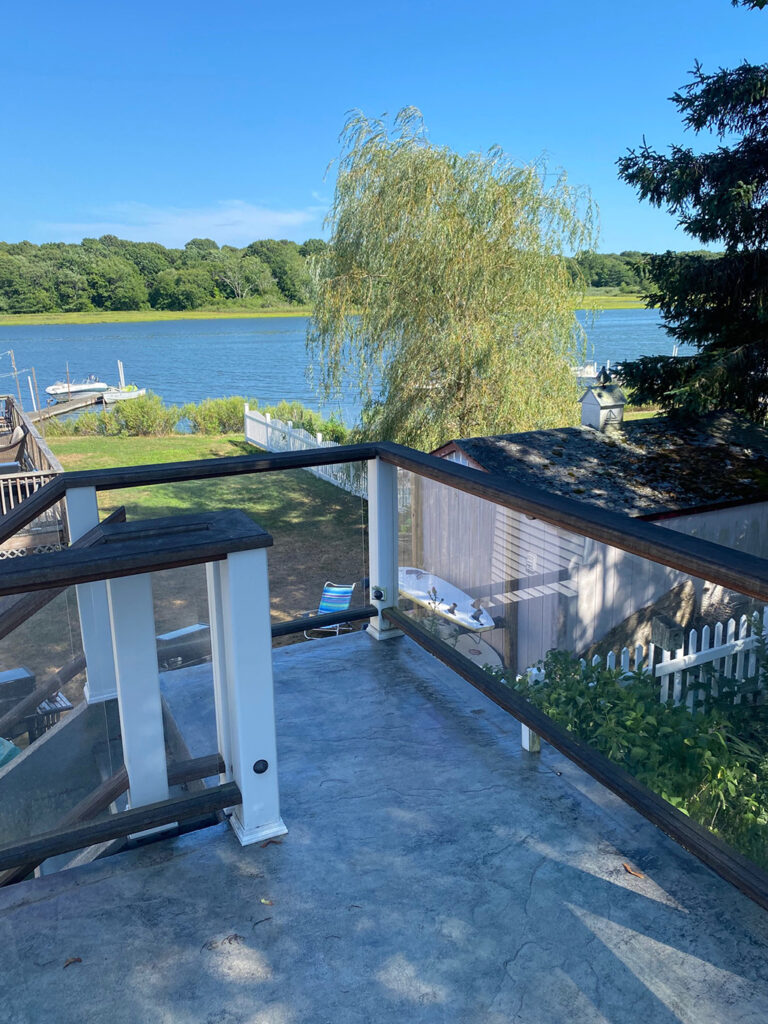
“When work becomes work and not enjoyable, it’s time to retire. Most businesses are you and some equipment. The only real value to your business without ‘you’ is the equipment.” – Dennis Purinton
Dennis Purinton, an outstanding foundational figure in the concrete industry, recently retired after an impressive 38 years of contribution. With a strong commitment altruistically to the Concrete Foundations Association and American Concrete Institute, his small contracting company soon became a giant in its field. Purinton, in his immense humility, would never admit the massive impact his work has made on the concrete industry; however, his projects truly speak for themselves.
But how does such a presence in the concrete industry come to be? “We began as a general contractor in March of 1984,” Purinton explained. “We expanded the concrete business for our own use approximately two years later, and approximately one year after that expanded to providing concrete services to other general contractors, which became a big demand, allowing us to discontinue our own general contracting work and concentrate on providing services to other general contractors.”
Throughout the company’s progressing success, Purinton never lost sight of what his career meant to him, and how his smaller company could contribute to such an essential industry. “I have always believed my knowledge and experience have little value unless I make it available to others. Whenever we took on a task or commitment, we committed to it 100 percent until completed. Volunteering to a commitment and expecting others to carry the load by only showing up for the glory or social gatherings and functions was not who I was. Trade associations are a form of higher education that generates our industry leaders. These industry leaders question the value and viability of existing codes and standards. Those same leaders advocate for new codes and standards that the latest technology requires, but respect the tried and true ways of the past.”
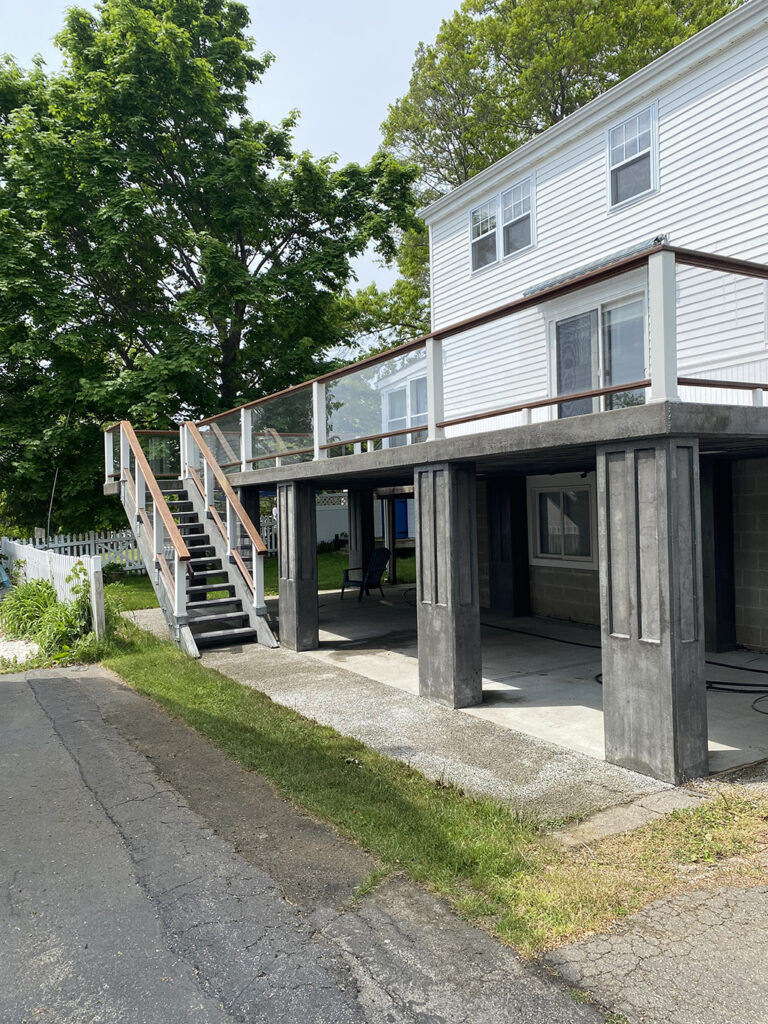
When asked to further expand on this idea of trade associations as a form of higher education and what approach he would take in teaching today’s young minds the purpose and wonder of working in the concrete industry, Purinton said, “I learned from the school of hard knocks. This industry is very gratifying and fulfilling. Most people do not have the ability to drive around and see their work, knowing it will become a part of history. It is important that those of us that have had success in the industry educate future generations, wherever we go in life, of the gratifying positives of the industry. Even if young people grow up in a family involved in any of the trades, that does not guarantee they too will want to do the same. Wherever I go, if I see someone who truly enjoys working outside, has a great work ethic, asks questions, and wants to learn, I step in and encourage, nurture, and share knowledge. It takes so much more than a classroom—which will make people book smart and teach basic routine functions in this industry—because each and every job is different and unique. It takes someone with quick thinking while staying calm when something goes wrong. It takes each and every one of us to take someone under our wing every time we have the chance or the opportunity arises.”
Purinton applied this philosophy to his son, who plays an integral part in carrying the bright torch of Purinton Builders into the future. Michael Purinton, Purinton’s son and partner in business, calls to mind the phrase “like father, like son.”
“The transition from sandbox trucks to productive equipment came very early for Mike,” Purinton said. “He loved working outdoors from the time he could walk and was at my side every chance he could get from about age eight. He had a natural ability, keen interest, was very attentive, and held a desire to learn and do anything needed. He was very proficient swinging a hammer and operating various equipment by age twelve. By the time he graduated high school, he was extremely interested in the business and after a couple years at college he was eager to return to the business full time. I could not have grown the business to what it became without his knowledge and hard work, which were invaluable.”
Family is a central pillar in the concrete industry, where this vital artform is passed down from generation to generation. Equally as important to the success and growth of all companies invested in the concrete business, however, is community. Purinton was asked to comment on how important relationships within the industry were to his business. “When you realize that your competition is not your enemy but a partner in the expansion of the industry, you can realize the benefits of industry associations and the experience of others, like competitors.” Purinton knows it is easy to get caught up in the competition of who gets what clients, whose income is the highest, and who can make the most outstanding concrete creations. Working together with other contractors, though, will provide growth and success much faster than working independently.
Another key relationship integral to the success of Purinton Builders is that of buisiness with supplier. Purinton speaks to those relationships and how they have changed over the years, saying, “Service from a dependable, quality supplier is by far more important than price. Poor product and service will cost you profit, customers, and your reputation as a quality, dependable contractor.” One of the ways he maintained good relations with suppliers is through mutual respect. “An understanding of supplier logistics makes for good supplier relationships. We never demanded extraordinary service unless circumstances absolutely required it. Prompt payment by us every month made reliable service much easier to accomplish. We maintained established relationships with our trusted manufacturers and suppliers for many years. We knew what to expect from them and they knew what to expect from us.”
With a myriad of projects and project types spread across nearly forty years of business, Purinton knows his passion was always the odd job or project that nobody wanted. “These projects were where the bread and butter always was,” he said. “While each one often meant learning something new or seeking collaboration and expertise that I didn’t have, the chance to provide the right solution always brought a combination of sincere gratification and healthy compensation.”
Perhaps this is why it is fitting that the culmination of all his work, all his knowledge and the pursuit of customer satisfaction, would lead to his final project being a retirement home for he and his wife. While having a vested and passionate interest in the outcome, the project was yet another example of the technical approach to quality Purinton Builders has been known for throughout New England. “The project required a high level of coordination with architects, engineers, general contractors, inspectors, utility companies, vendors and suppliers, and, of course, the ‘homeowners,’” Purinton said. “I was a licensed demolition contractor, so the project began with careful attention to recycling or repurposing as much of the materials obtained through the demolition.” The objective for the project was to create a home structurally designed to withstand the extreme weather that the couple could face with an environmentally friendly structure and long-term life expectancy.
A high emphasis was placed on the project being visually pleasing and, of course, highlighting the use of concrete. In the end, Purinton Builders gave the Purintons a project with integrally insulated foundation walls and concrete featured in the driveway, patios, exterior deck, interior floors, and exterior concrete stairs descending from each of the outdoor entertainment spaces. “We concentrated on environmentally friendly concrete accessories and materials,” Purinton said. “With long-term durability, structural stability, and energy efficiency as focal goals, we pulled on decades of experience to select the right insulating and lighting systems, as well as relying on our industry relationships to optimize the concrete mix designs.” The materials used on the project were locally sourced, including hardwood flooring harvested from locally grown timbers. In keeping with the high thermal efficiency and thermal mass of the insulated concrete, Purinton selected highly energy-efficient mechanical systems, such as having high SEER rating in the heating and cooling equipment and a radiant floor heating system embedded in a gypcrete base in areas where there is masonry flooring. Having seen the latest in technology for lighting efficiency in concrete homes he had built, Purinton also incorporated LED smart lighting systems to help feature spaces throughout the home. Finally, using some of the more adventurous experience he and Michael had gained in the last decade, they finished the project with sitework that involved storing all site water using pervious concrete and underground dispersing systems. Start to finish, this project completed a labor of love and conscientious commitment to quality that summarizes the career of the Purintons.
When things were going so well for Purinton Builders, how did Dennis Purinton know it was time to retire and go about making that incredibly complex decision? “Age and continuing restrictions and mandates being put on small businesses took the fun away from being in business. The aggravation of day-to-day requirements did not justify the additional income or the loss of personal and family time. I still have many opportunities to continue to contribute to the betterment of the industry as well as educate and pass on knowledge to other contractors.” For Dennis Purinton, just like the Abrams’ Law requires the perfect ratio of water to cement, his career required a healthy balance of work and joy. When asked what advice he would give for others to follow, he leaves us with this: “When work becomes work and not enjoyable, it’s time to retire. Most businesses are you and some equipment. The only real value to your business without ‘you’ is the equipment.”
